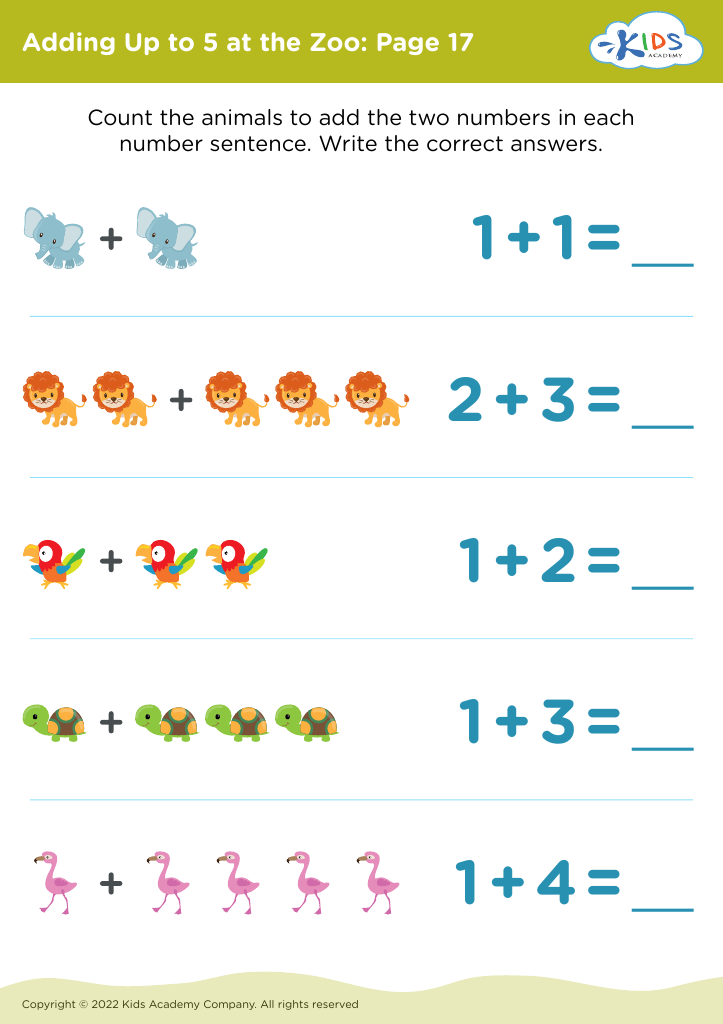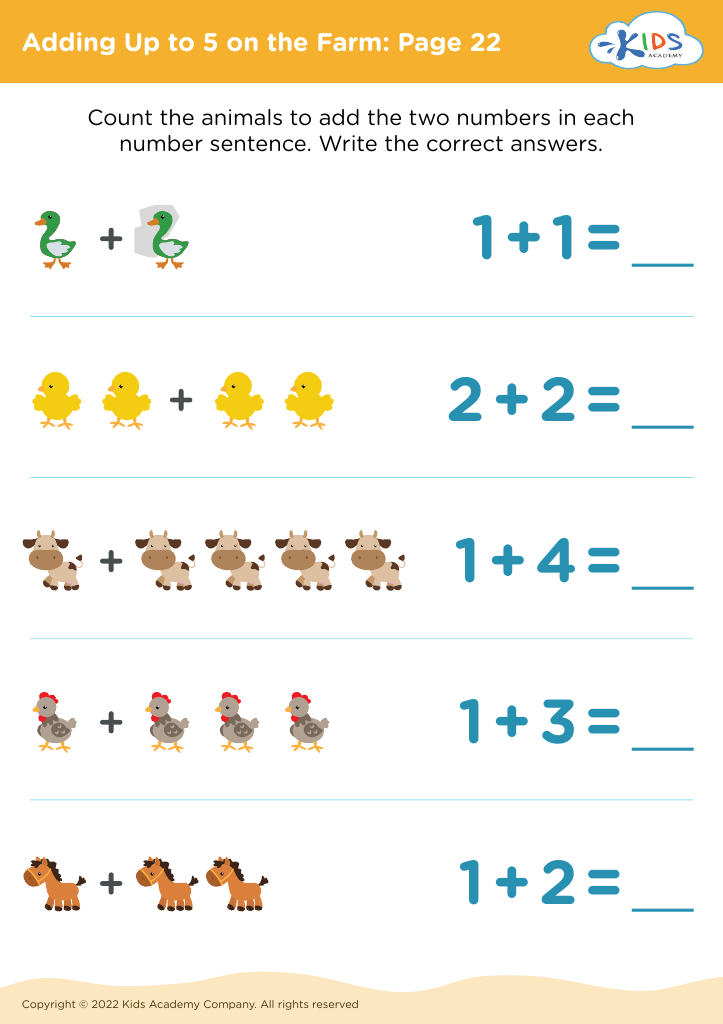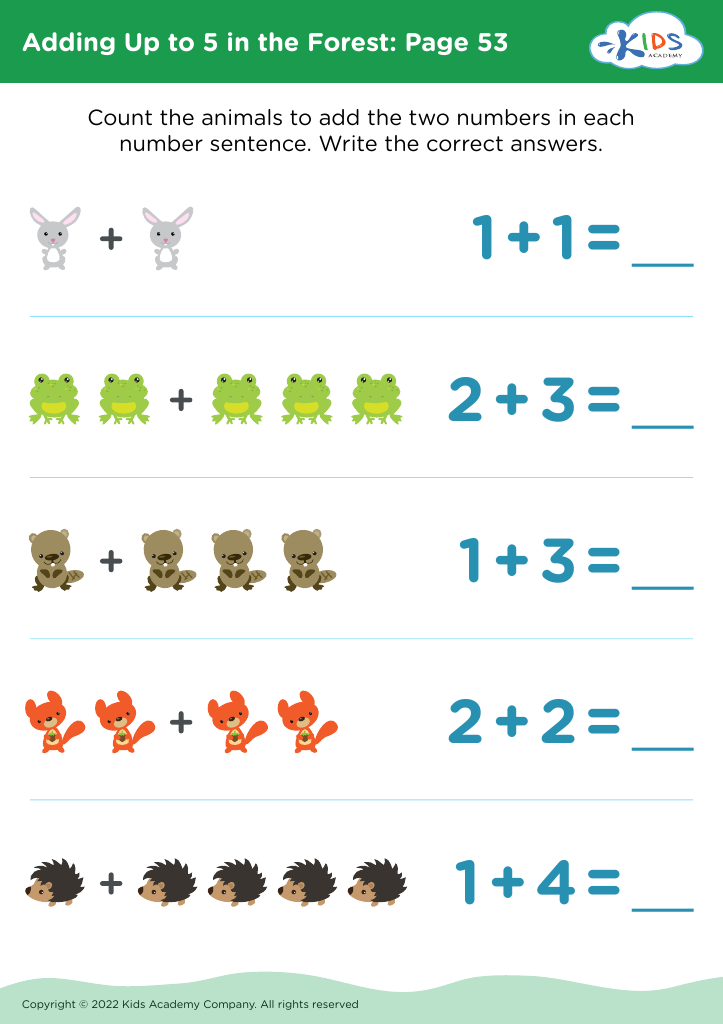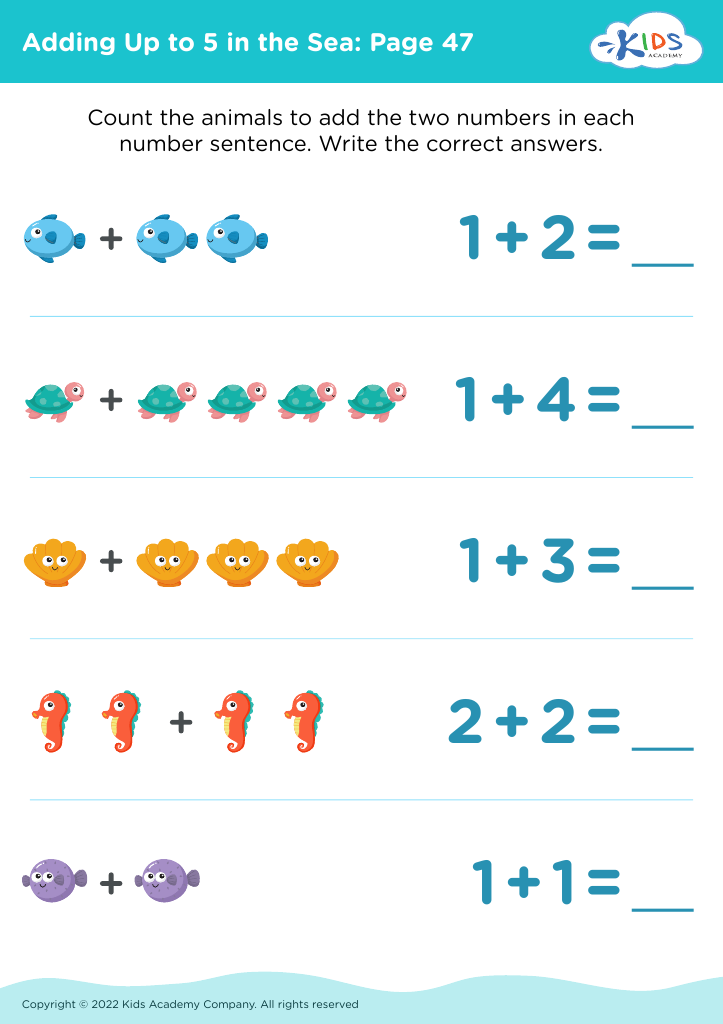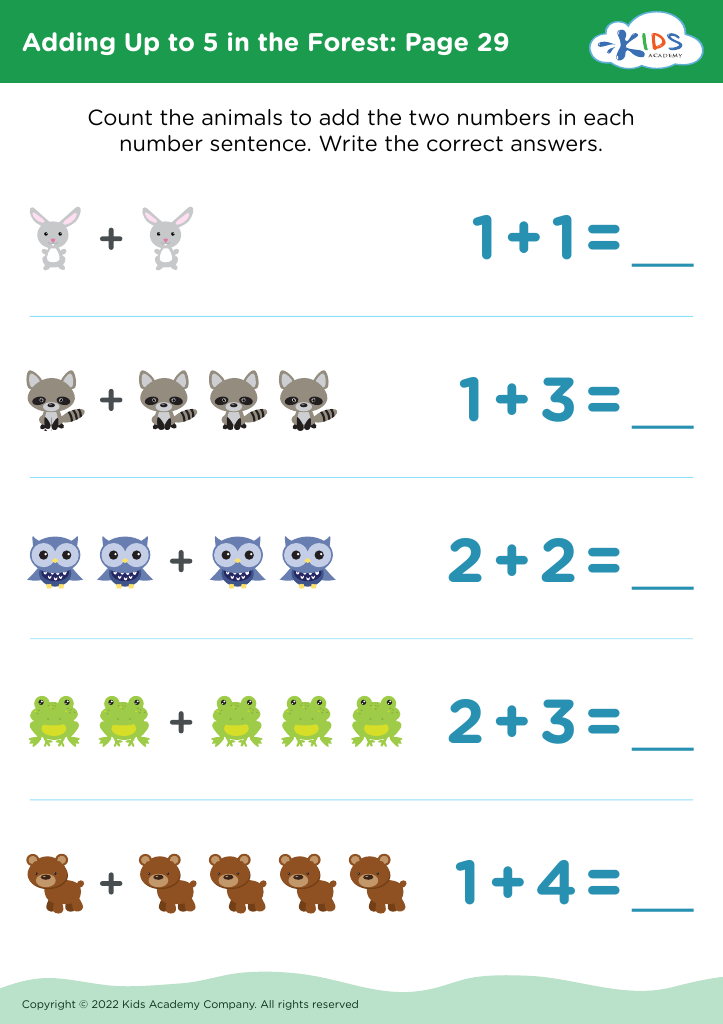Counting proficiency Math Worksheets for Ages 5-6
13 filtered results
-
From - To
Enhance your child's counting skills with our engaging Counting Proficiency Math Worksheets for ages 5-6! Designed to cultivate foundational mathematical concepts, these worksheets offer a blend of fun activities and practice exercises tailored for young learners. Your child will explore number recognition, sequencing, and one-to-one correspondence through colorful illustrations and interactive challenges. Perfect for both classroom settings and home learning, our comprehensive resources foster confidence in counting and help lay the groundwork for future math success. Download our worksheets today to boost your child's math journey and make learning enjoyable and effective!
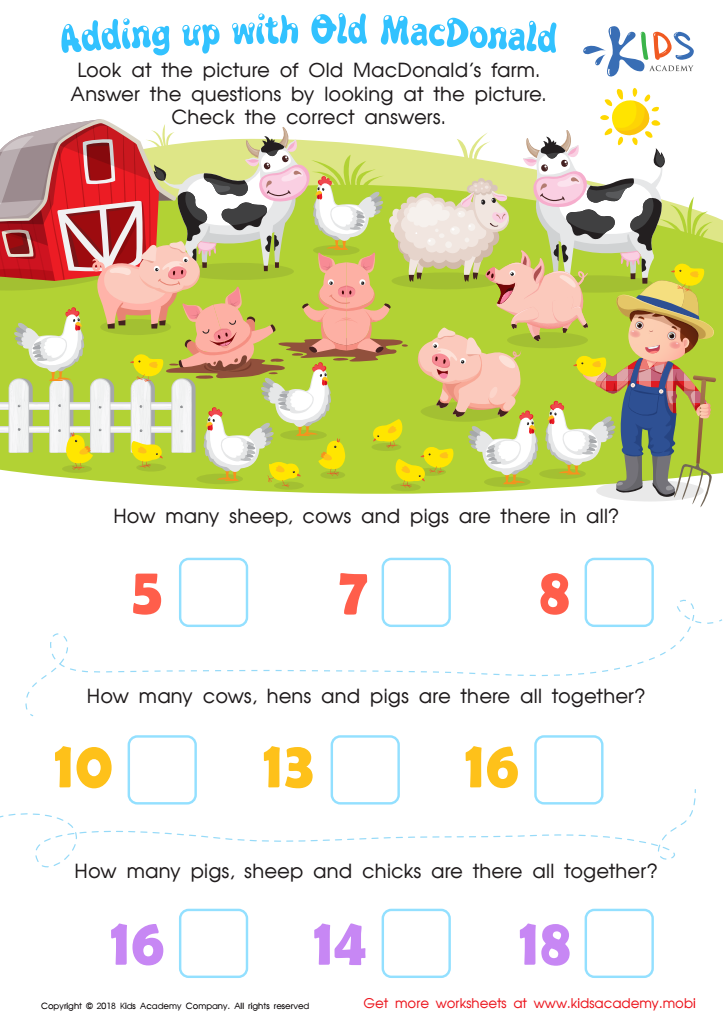

Adding Up with Old MacDonald Worksheet
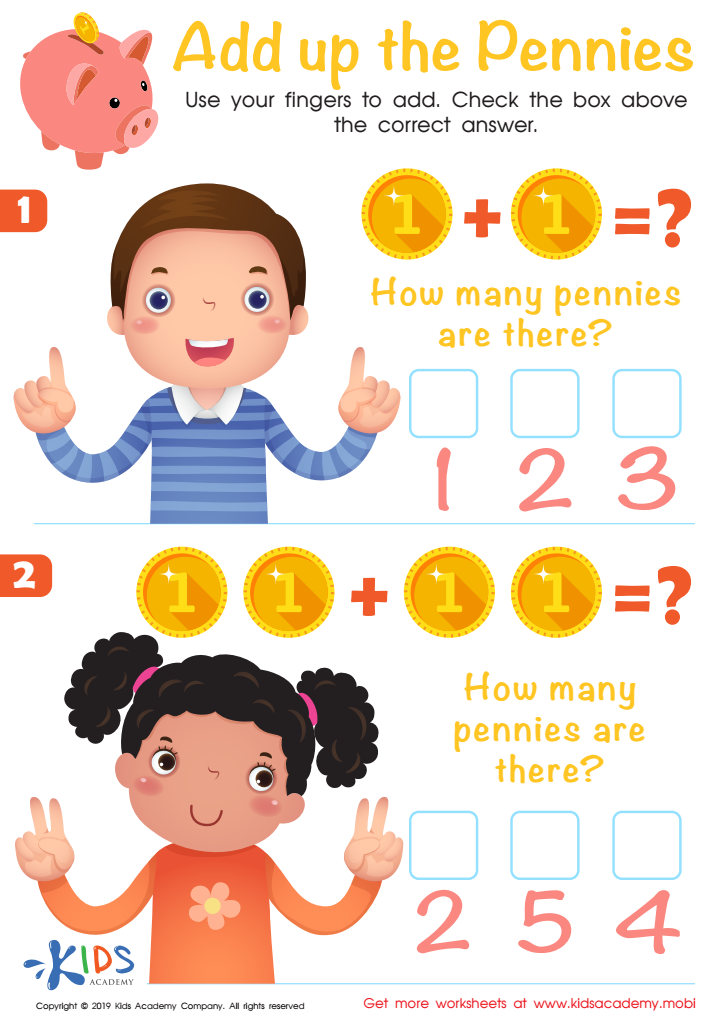

Add up the Pennies Worksheet
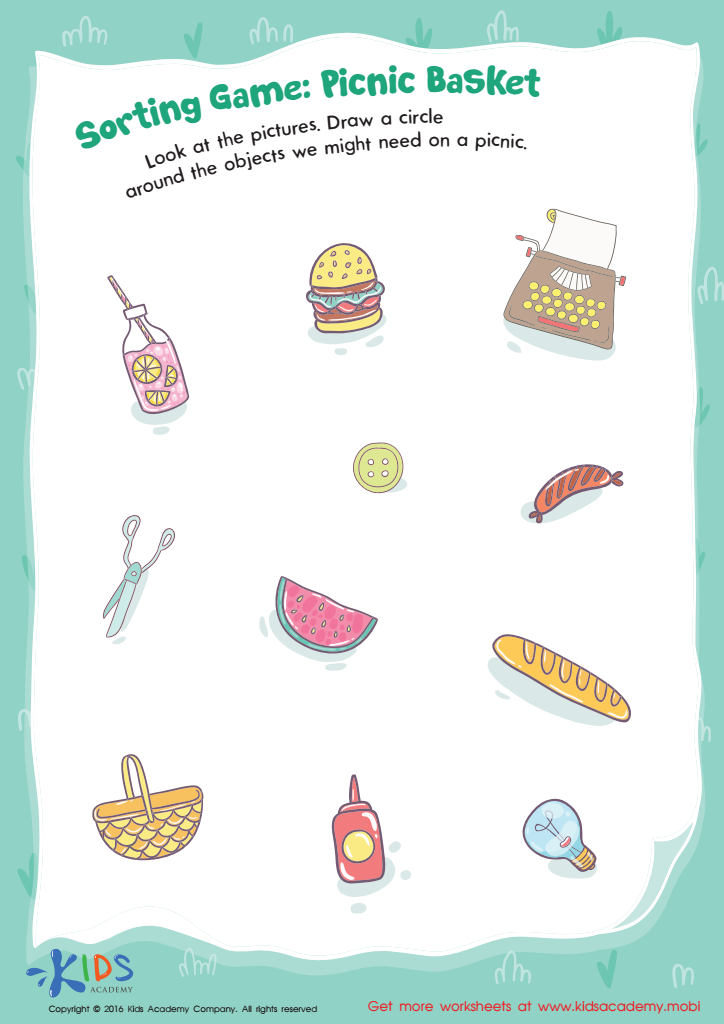

Picnic Basket Sorting Worksheet
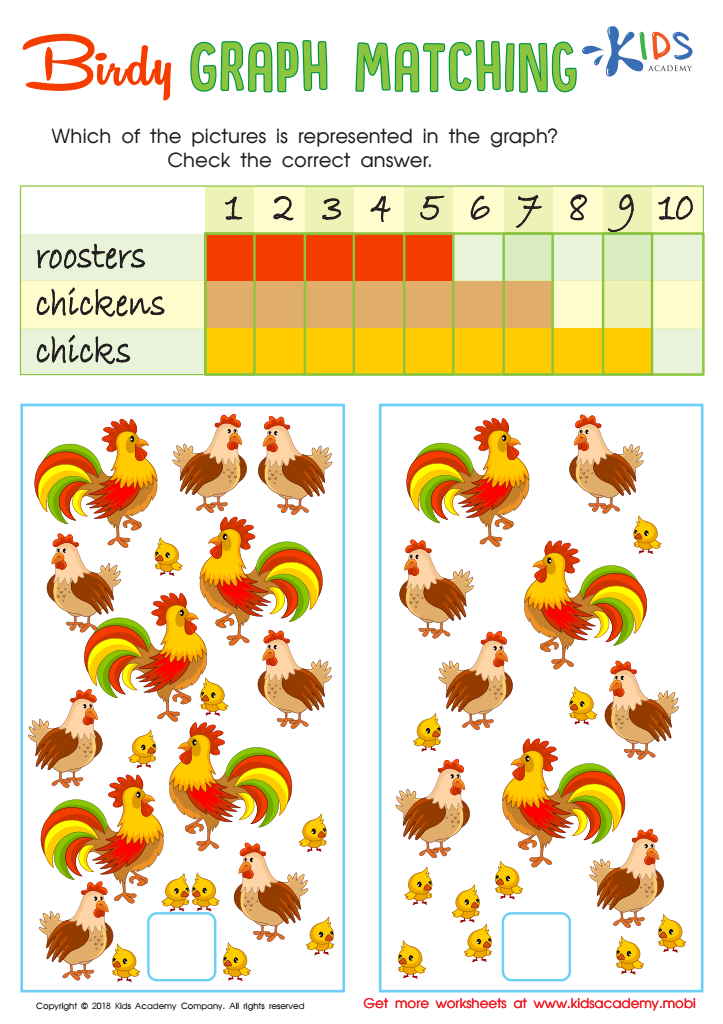

Birdy Graph Matching Worksheet
Counting proficiency in children aged 5-6 serves as a fundamental building block for their future mathematical understanding. At this stage, children begin to explore the world of numbers, and developing strong counting skills lays the groundwork for various mathematical concepts they'll encounter later in school, such as addition, subtraction, and number sense. When parents and teachers prioritize counting proficiency, they not only enhance children's ability to perform basic arithmetic but also foster their overall cognitive development.
Furthermore, early counting skills contribute to children's confidence and willingness to engage with math. A solid understanding of numbers enables children to participate in math-related activities and games, reinforcing their enjoyment of the subject. Effective counting also supports problem-solving abilities, as children learn to quantify objects and explore comparisons, enhancing critical thinking skills.
Moreover, discrepancies in counting proficiency can lead to challenges that impact a child’s academic journey. By focusing on these skills early on, parents and teachers can identify learning gaps and provide targeted support, ensuring that all children have an equitable start in their educational endeavors. Overall, fostering counting proficiency cultivates a positive attitude toward mathematics and prepares children for a lifetime of learning.
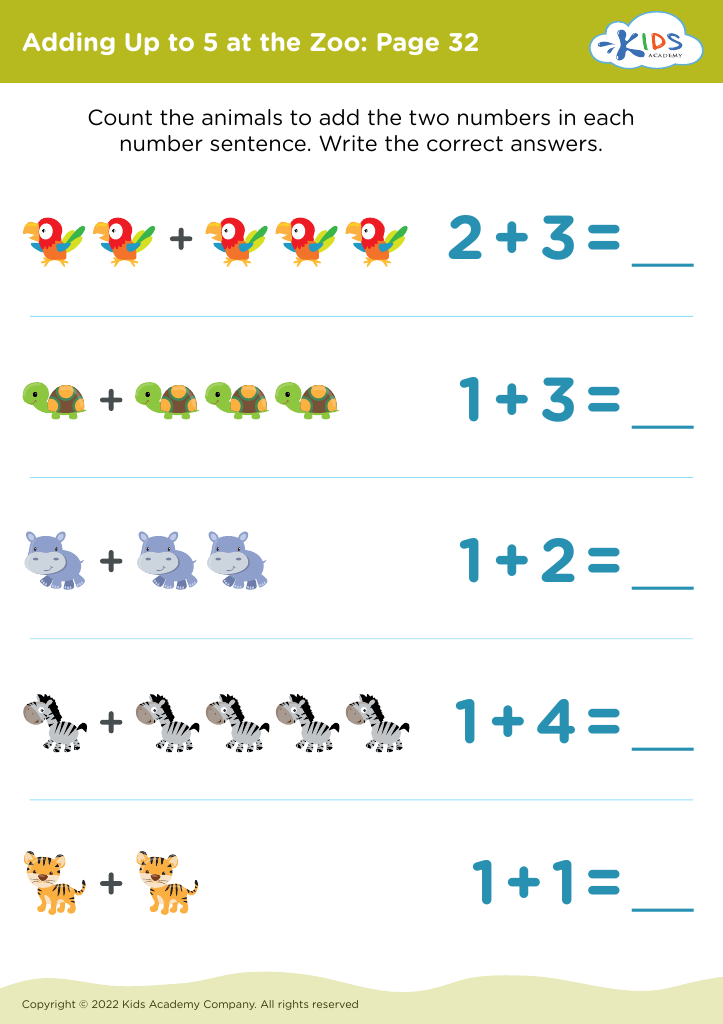

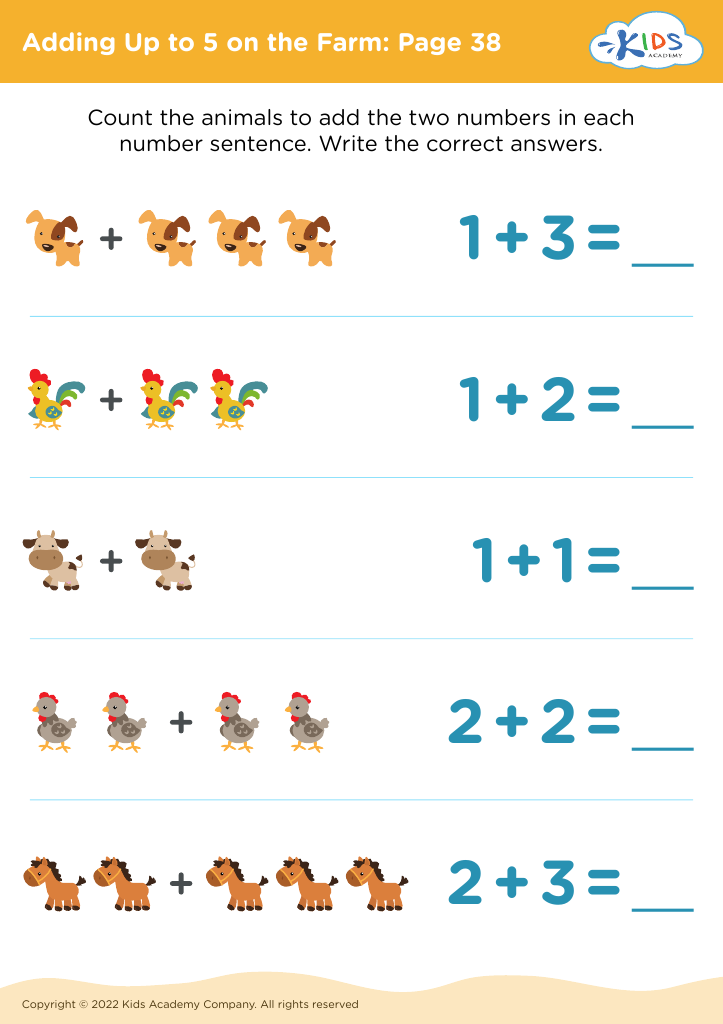
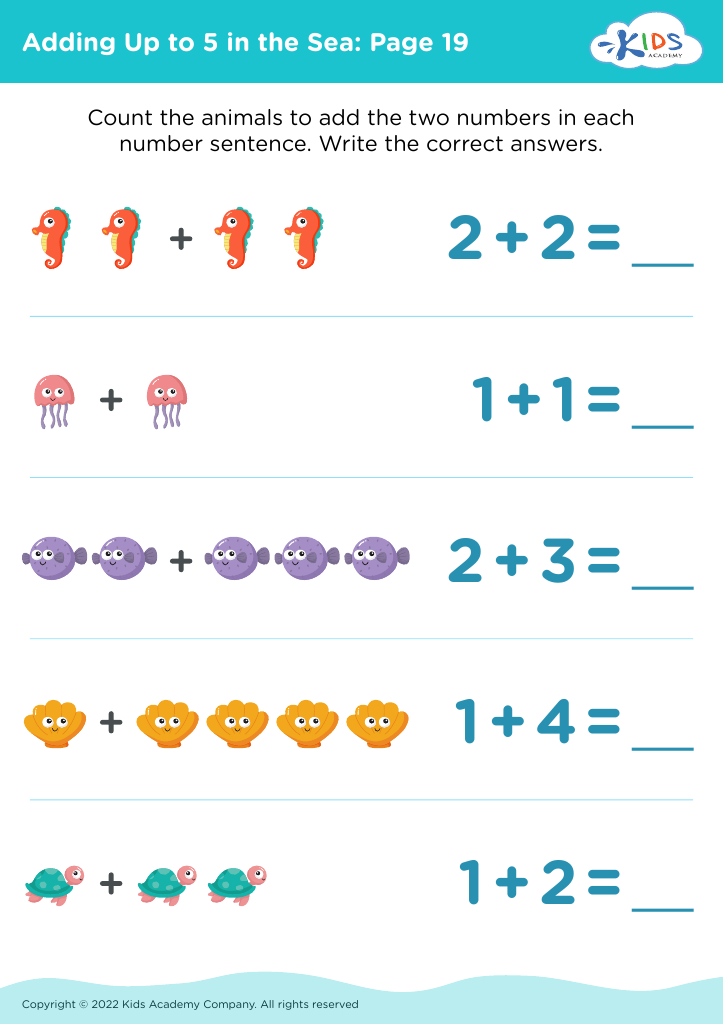
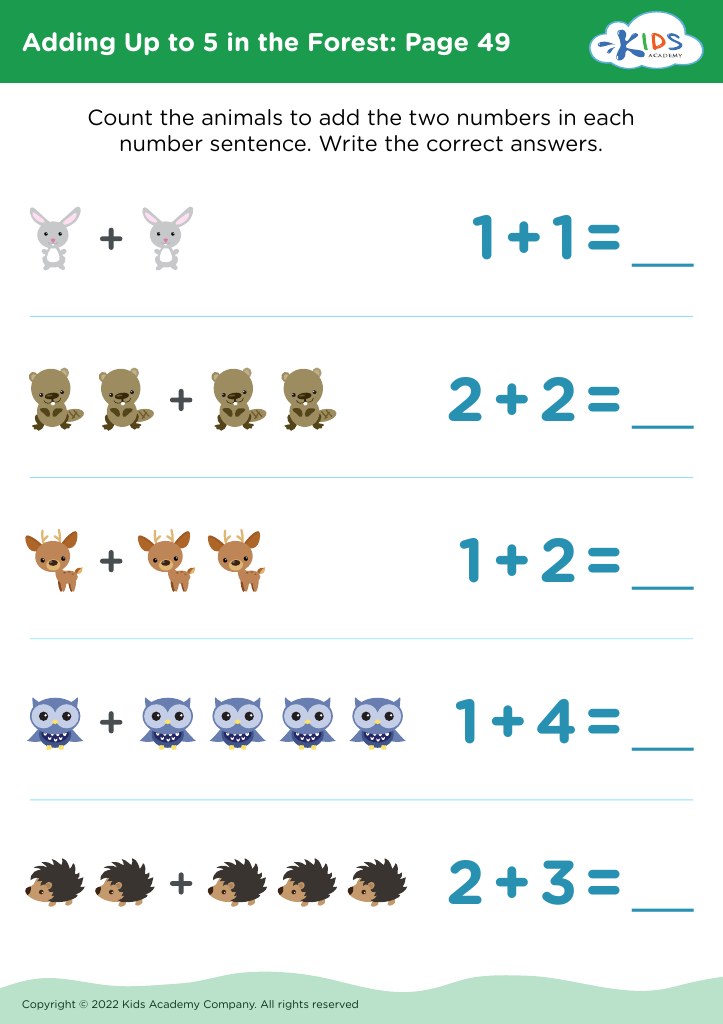
 Assign to My Students
Assign to My Students
